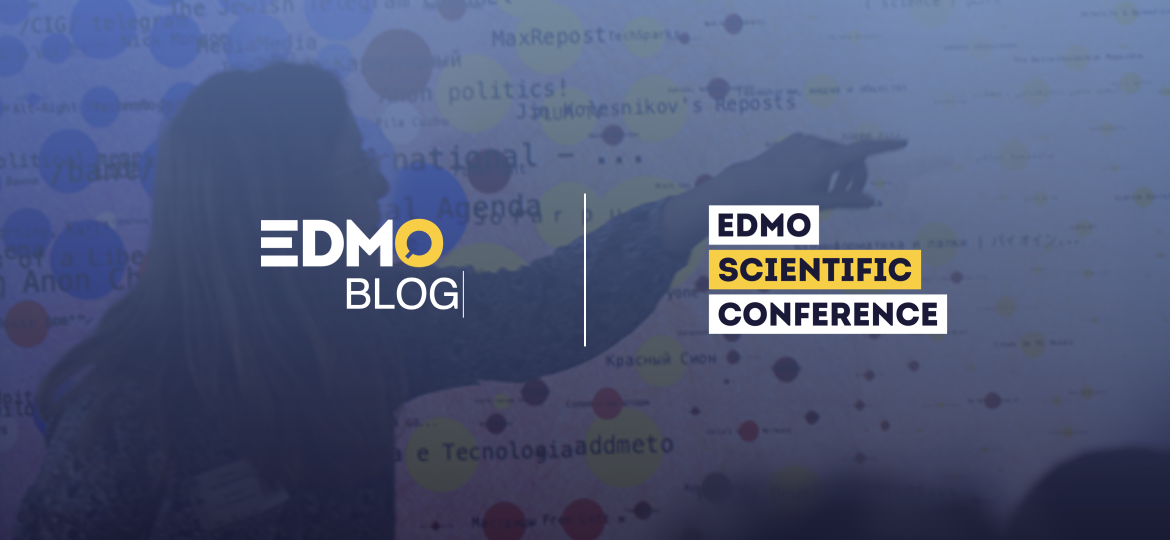Reflecting on the Success of the EDMO Scientific Conference on Disinformation
Dr Aqsa Farooq1 & Professor Claes de Vreese1
1University of Amsterdam
Key words: Research, Scientific Conference
In February, the EDMO Scientific Conference on Disinformation 2024 brought together over 120 multidisciplinary colleagues to delve deep into this critical topic over two vibrant days at the University of Amsterdam. The conference not only showcased the substantial scholarly interest in investigating the disinformation problem, but also provided a platform for insightful discussions and dialogue for future avenues of research.
One of the highlights of the conference was the overwhelming number of submissions, leading us to expand the programme and increase the capacity of the conference to accommodate more presentations and more attendees. This is indicative of a growing interest and commitment from researchers and practitioners alike to address the challenges posed by disinformation. The breadth and depth of the submissions underscored the urgency and importance of tackling this issue from various angles and perspectives.
We were honoured to be able to feature two exciting and timely keynote speeches by Professor Sander van der Linden and Professor Annika Sehl. Professor van der Linden opened the conference with a talk focusing on pre-bunking strategies, highlighting the growing research on inoculation as a way of building resilience against disinformation, such as through the Bad News Game. Closing the conference on the second day was Professor Sehl, whose talk emphasised the pivotal role Public Service Media (PSM) could play in addressing disinformation, through fact-checking, promoting media literacy and strengthening genuine PSM platforms.
Over the course of the conference, several topics emerged as crucial areas of focus in the fight against disinformation. The role of fact-checkers was discussed extensively, acknowledging their importance as a remedy against falsehoods while recognising the challenges they face in reaching a wider audience. Additionally, new methods in disinformation practices and research were explored, reflecting the ever-changing tactics employed by those seeking to manipulate information, and the new tools and methodologies being developed by the research community in response. The importance of user-centred research was reinforced by the findings suggesting that psychological resistance to disinformation was emerging amongst citizens, however, the scholarship focusing on educational interventions and literacy initiatives offered promising insights into the innovative approaches that could be implemented to offset this trend. Finally, the talk presentations wrapped up with a thought-provoking panel on the implications of sophisticated AI technologies bursting onto a disinformation scene–both in terms of harmful outcomes and driving solutions.
The insights and discussions shared during the conference reverberated beyond the confines of the event, with many attendees taking to social media to share key takeaways and engage in further dialogue. Additionally, plans are currently underway to compile the wealth of knowledge generated into a special issue focusing on Generative AI and disinformation, in response to the timeliness of the topic and the overwhelming interest in developments within this field. With this special issue, we hope to ensure that some of the findings and recommendations from this conference reach a wider audience and contribute to ongoing efforts to combat disinformation.
In conclusion, the EDMO Scientific Conference on Disinformation served as a catalyst for meaningful conversations and collaborations, reaffirming the collective commitment to addressing one of the most pressing challenges of our time. As we continue to navigate the complex terrain of an ever-changing information landscape, events like these provide invaluable opportunities to learn, share, and ultimately, work towards a more informed and resilient research community.
Photos Credit: Paul Ballot









